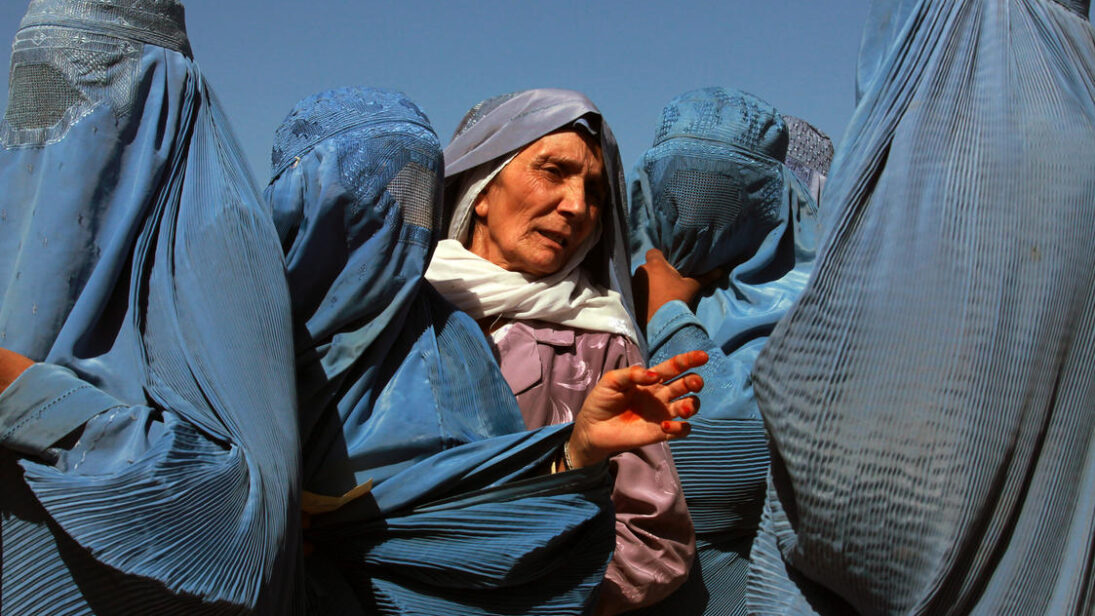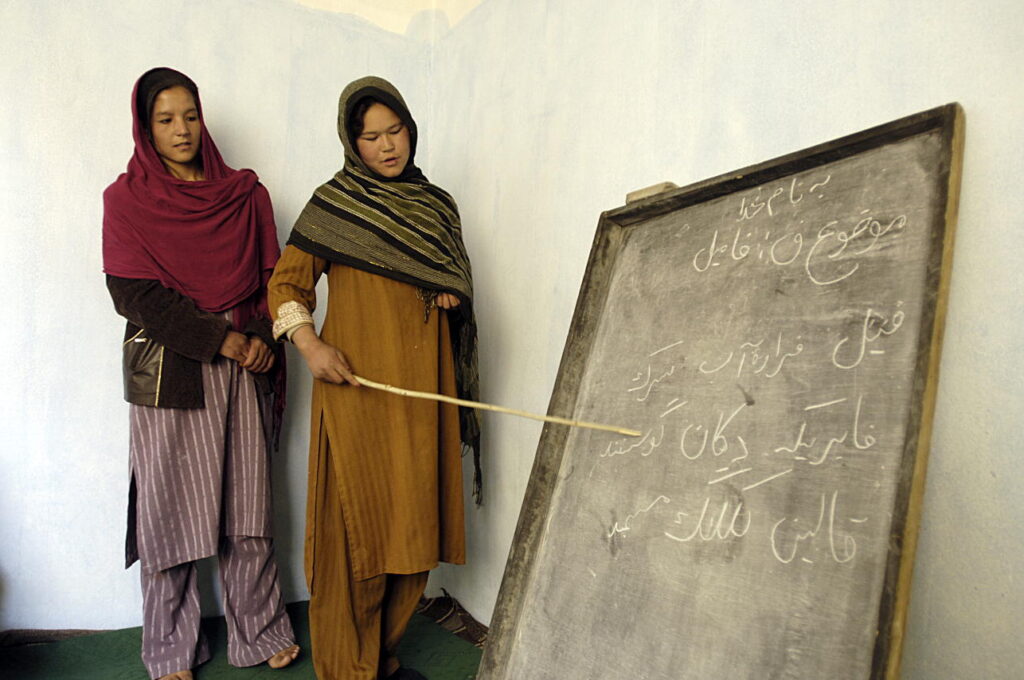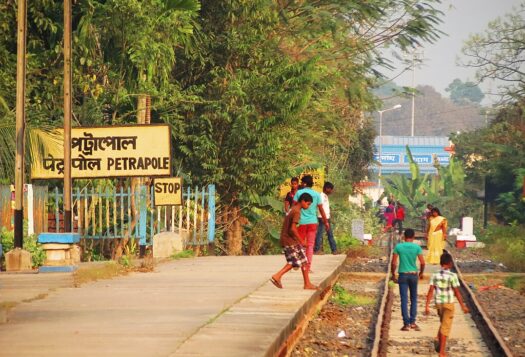
Note: This research was conducted via phone interviews with female residents of Kabul and Afghan female refugees in Peshawar, Pakistan.
According to UN reports, 90 percent of the dead and injured as a result of the October 2023 earthquake in Afghanistan were women, as more women were in enclosed spaces within their homes during the natural disaster. Such incidents further add to the miseries of Afghan women who are excluded from the Afghan polity. Although the Taliban claimed in their first press conference in August 2021 that they would respect the rights of women within the framework of Islamic law, they have not abided by their promises. As a result, Afghan women are facing the worst gender apartheid of current times.
The women of Afghanistan have been denied the right to education and work. Consequently, they cannot earn money to support their families, further adding to the humanitarian crisis in Afghanistan. Many young girls are reportedly forced into child marriages in return for money to feed their families. They are not allowed to step outside their homes without male family members. Afghan women’s presence and participation in the public sphere has been utterly compromised since the Taliban came into power in August 2021. To counter this invisibility, this research documents Afghan women’s perspectives on the impacts of Taliban rule on their lives and their expectations from the international community.
Ban on Education and Employment
Banning women’s education and employment was among the Taliban’s first moves upon coming to power, affecting an entire generation. A female resident from Kabul expressed her views on the issue:
The Taliban’s approach to girls’ education has not changed. This group has banned girls from attending schools and universities, bringing back darkness and ignorance to Afghanistan. With the continuation of this group’s rule, the educational achievements of girls and women in the past two decades will be reversed entirely and the future of Afghan women will be totally dark.[1]
The education ban also induced economic hardship for female educators, relegating them to a future with diminished prospects. In 2019, approximately 40 percent of Afghanistan’s employed women were teachers. Now, with the ban on girls’ education, their situation can be well imagined. One respondent recounted that several former teachers are now begging in the streets to earn a livelihood for their families.[2]
Beyond education, women’s right to work has been challenged in almost every sector – even those that are female-specific. For instance, in January 2023, beauty salons in Afghanistan were banned. Approximately 60,000 women were estimated to have been employed in salons. These women have become unable to support their families after the Taliban’s restrictions on work and movement. A respondent confirmed the situation;
Many women had been the sole or primary wage earners for their family, but most lost their employment due to Taliban policies restricting women’s access to work. Only those working in primary education or health care were still able to work, and most were not being paid due to the financial crisis.[3]
The Taliban has also constrained the social space of women, who are not allowed out of the home without a male family member, and must observe a strict dress code if they choose to go out. In December 2021, the government’s virtue and vice ministry ordered that women traveling distances longer than 45 miles must be accompanied by a close male relative.

Recommendations from Afghan Women to the International Community
In this situation, Afghan women’s last hope is the international community. With them in mind, the Afghan women respondents proposed six recommendations.
- Sustained Diplomatic Pressure
It is important to maintain persistent diplomatic pressure on the Taliban to respect and uphold women’s rights. This could involve coordinated efforts by UN member countries to establish a unified position on women’s rights in Afghanistan. The international community should especially ensure the safety of the Afghan women activists who are still based in Afghanistan, whose lives are under threat.[4] In this regard, the role of the Afghan female diaspora is crucial to keep the international community informed of the situation. Their participation in the UN and other international forums can be helpful in putting pressure on the Taliban. - Targeted Gender-Based Humanitarian Aid
Given the dire consequences for women of the humanitarian crisis in Afghanistan, targeted gender-based humanitarian aid is vital.[5] Despite the challenging operational environment, international NGOs and UN agencies should coordinate to provide much-needed aid directly to Afghan women. This could include food aid, healthcare services, mental health support, and livelihood assistance.[6] It is important that humanitarian organizations that are already working in Afghanistan should get uninterrupted financial support by the international community to continue their operations.[7] - Financial Sanctions and Incentives
The international community should utilize financial tools to pressure the Taliban while avoiding the inadvertent harm caused by blanket sanctions. Financial institutions like the IMF and the World Bank should devise strategic financial measures that target the Taliban regime and its supporters without hurting the Afghan population. Simultaneously, financial incentives should be offered to encourage positive changes. This might include resuming aid or providing development loans if the Taliban takes verifiable steps towards improving women’s rights and freedoms. An important step is to link the financial assistance with the reopening of schools or allowing girls to pursue their studies abroad.[8] - Amplifying Afghan Women’s Voices
The international community must ensure that Afghan women’s stories, needs, and aspirations are heard on global platforms. This could involve partnering with international media outlets to highlight their stories and using digital platforms to amplify their voices. It is crucial to involve Afghan women in decision-making processes affecting their lives. For instance, the UN could insist on Afghan women’s representation in any negotiation or discussion related to Afghanistan’s future.[9] One respondent stated;As an Afghan refugee, I can help Afghan women in their struggle against gender apartheid by raising awareness about their situation, supporting organizations that work for women rights in Afghanistan, and amplifying their voices on platforms that can influence change.[10]
- Capacity-Building through Education and Skill Development
The international community must also focus on long-term empowerment of Afghan women through education and skill development. Particularly, the Afghan diaspora can support the promotion of online education for Afghan girls and in finding opportunities for Afghanistan-based female workers to set up online businesses.[11] It is important to promote skill development programs focusing on skills that can be taught and used remotely, such as digital literacy, language proficiency, or arts and crafts proficiency courses.[12] - Conditioned Release of Afghan Financial Assets
The last strategy proposes the conditional liberation of Afghan assets frozen in American financial institutions. This hinges on the Taliban demonstrating quantifiable advancements in women’s rights and gender equality. Involving independent monitors like the UN and international NGOs would ensure stringent verification of progress. The release of assets not only serves as a compelling incentive for the Taliban, but also equips international stakeholders with a pragmatic mechanism to demand, observe, and influence positive change in gender equality in Afghanistan.
Conclusion
Engaging the Taliban in order to protect women’s rights requires a multi-pronged approach involving regional cooperation and a credible roadmap for recognition of an inclusive government. The key to engaging the Taliban effectively lies in offering them incentives that align with their diplomatic objectives. Relief from sanctions and official recognition, particularly from the United States, are their main goals. If the international community engages them systematically with clear directions regarding preserving women’s rights, it can be hoped that women can come out of the darkness and their visibility in the Afghan polity may increase.
Disclaimer: Pseudonyms have been used to protect the identities and safety of the women who participated in this research.
[1] Interview with Zalanda, a resident of Kabul, September 11, 2023. [2] Interview with Nadira, a former secondary school teacher based in Pakistan as refugee, September 13, 2023. [3] Interview with Momina, resident of Kabul, September 13, 2023. [4] Interview with Faroha, resident of Kabul, September 15, 2023. [5] Interview with Firdous, Afghan refugee and MPhil student in Pakistan, September 18, 2023. [6] Interview with Nafiza, Afghan refugee in Pakistan, September 20, 2023. [7] Interview with Firdous. [8] Interview with Afrozah, former student at American University, Kabul, September 18, 2023. Generally, this was the opinion of almost all the respondents. [9] All the respondents emphasized the importance of providing Afghan women with social media, digital and print media platforms. [10] Interview with Tahira, Afghan refugee in Peshawar, September 14, 2023. [11] Interview with Nadra. [12] Every respondent requested the international community to respond to the sustainable model of economic growth aimed at gender empowerment.Also Read: SAV Q&A with Noorulain Naseem – Pakistan’s Declaration Against Undocumented Migrants
***
Click here to read this article in urdu.
Image 1: Afghan Women Queue at World Food Programme Distribution Point via Flickr
Image 2: Afghan Women Literacy Class via Flickr


